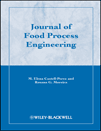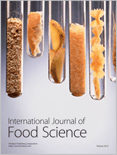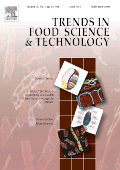
FOOD TECHNOLOGY AND BIOTECHNOLOGY
metrics 2024
Transforming Ideas into Impactful Food Innovations
Introduction
FOOD TECHNOLOGY AND BIOTECHNOLOGY is a distinguished peer-reviewed journal published by the Faculty of Food Technology and Biotechnology, University of Zagreb, Croatia. Since its inception in 1993, this Open Access journal has become a crucial platform for disseminating innovative research in the fields of food science, biotechnology, and chemical engineering. With a commendable impact factor and consistent Q2 and Q3 rankings across multiple categories—including Biotechnology, Food Science, and Industrial Engineering—this journal not only fosters academic discussions but also addresses real-world challenges in food production, safety, and sustainability. As it converges its thematic scope from 1996 to 2024, FOOD TECHNOLOGY AND BIOTECHNOLOGY remains committed to advancing knowledge through high-quality research and interdisciplinary collaboration, making it an essential resource for researchers, professionals, and students seeking to stay at the forefront of food innovation and biotechnology.
Metrics 2024
 0.45
0.45 2.30
2.30 3.80
3.80 80
80Metrics History
Rank 2024
Scopus
IF (Web Of Science)
JCI (Web Of Science)
Quartile History
Similar Journals

Applied Food Biotechnology
Unlocking the potential of biological processes in food technology.Applied Food Biotechnology is a dynamic and engaging open-access journal dedicated to the interdisciplinary field of food biotechnology, published by Shahid Beheshti University of Medical Sciences, Faculty of Medicine. Since its inception in 2014, this journal has provided a platform for the dissemination of cutting-edge research that combines aspects of applied microbiology, biotechnology, and food science, significantly contributing to advancements in food safety, processing, and nutritional enhancement. With an impressive impact factor, the journal ranks Q3 in multiple relevant categories, including Applied Microbiology and Biotechnology, Biotechnology, and Food Science in 2023, highlighting its influence within these fields. The journal's scope encourages innovative studies that investigate the utilization of biological processes in food technology, aiming to foster both scientific inquiry and practical applications across diverse demographics. With its commitment to open access, Applied Food Biotechnology ensures that all research findings are readily available to researchers, professionals, and students globally, enhancing collaboration and knowledge sharing. Located in Tehran, Iran, this journal serves as a vital resource for anyone invested in the future of food biotechnology.

JOURNAL OF FOOD PROCESS ENGINEERING
Innovating the future of food processing technologies.JOURNAL OF FOOD PROCESS ENGINEERING, published by WILEY, is a prestigious academic journal dedicated to advancing the field of food processing through innovative engineering research and practical applications. With an ISSN of 0145-8876 and an E-ISSN of 1745-4530, this journal serves as a crucial platform for researchers and professionals focusing on the intersection of chemical engineering and food science. Operating in the United States and established in 1977, it has gained a reputation for its rigorous peer-review process and high-quality publications, reflected in its Category Quartiles of Q2 in both Chemical Engineering (miscellaneous) and Food Science for 2023. The journal is also well-positioned within the Scopus rankings, holding the 104th spot out of 389 in Agricultural and Biological Sciences and the 82nd in General Chemical Engineering. While it currently does not offer Open Access options, the JOURNAL OF FOOD PROCESS ENGINEERING remains an indispensable resource for those looking to explore critical studies and developments that shape food processing technologies by the year 2024 and beyond.

JOURNAL OF FOOD SCIENCE AND TECHNOLOGY-MYSORE
Pioneering Research for a Sustainable Food FutureJOURNAL OF FOOD SCIENCE AND TECHNOLOGY-MYSORE, published by SPRINGER INDIA, is a distinguished peer-reviewed journal that has been contributing to the ever-evolving field of food science since its inception in 1974. With an ISSN of 0022-1155 and E-ISSN 0975-8402, this journal holds a commendable position in the Q2 category for Food Science, as per the 2023 metrics, and ranks #58 out of 389 in Scopus's Agricultural and Biological Sciences sector, achieving an impressive 85th percentile. The journal publishes high-quality research articles, reviews, and case studies that cover a wide array of topics, from food preservation to innovative technologies in food processing. Although it is not an open-access journal, it endeavors to disseminate essential knowledge and research strategies that advance food science and benefit both industry professionals and academia. The geographical reach of the journal, alongside its rigorous editorial standards, solidifies its stature as a pivotal resource for researchers, professionals, and students dedicated to the enhancement of food science practices and technologies.

ACS Food Science & Technology
Pioneering Research for Tomorrow's Food ChallengesACS Food Science & Technology is a premier peer-reviewed journal published by the American Chemical Society (ACS) that addresses the dynamic intersections of food science, chemistry, and technology. With its E-ISSN: 2692-1944, this journal aims to disseminate innovative research and comprehensive reviews that enhance understanding in fields such as analytical chemistry, organic chemistry, and general food science. Despite the absence of an Open Access model, its position in the Q2 quartile for multiple categories in 2023 underscores its significant impact on the scholarly landscape, ensuring researchers can access high-quality research pertinent to today's food challenges. With an expanding timeline of 2021 to 2024, ACS Food Science & Technology is poised to be an essential resource for advancing the scientific community's knowledge, fostering collaboration, and bridging gaps between academia and industry.

International Food Research Journal
Fostering Excellence in Global Food ResearchThe International Food Research Journal, published by UNIV PUTRA MALAYSIA PRESS, serves as a pivotal platform for disseminating innovative research within the field of food science. With an ISSN of 1985-4668 and an E-ISSN of 2231-7546, the journal has successfully established its presence since its inception in 2007, converging its findings through 2024. This esteemed journal holds a Q3 ranking in Food Science, illustrating its valuable contributions to the field as demonstrated by its Scopus rank of 276 out of 389, placing it in the 29th percentile among its peers in Agricultural and Biological Sciences. Although it operates under a traditional publishing model, its academic integrity and focus on high-quality research ensure that it remains a vital resource for researchers, professionals, and students eager to explore advances in food technology, nutrition, and safety. By encouraging interdisciplinary collaboration and critical dialogue, the International Food Research Journal plays an essential role in shaping the future of food science research.

Food Production Processing and Nutrition
Empowering scholars with breakthrough findings in food science.Food Production Processing and Nutrition, published by SpringerNature, stands at the forefront of advancing knowledge in the vibrant fields of food science, nutrition, and public health. This esteemed Open Access journal, operational since 2019, plays a pivotal role in disseminating breakthrough research that intersects food production processes with nutritional insights, making it an invaluable resource for researchers, professionals, and students alike. With a commendable 2023 impact factor reflecting its robust scholarly contributions — Q1 in Food Science and Q2 in both Nutrition and Dietetics and Public Health, Environmental and Occupational Health — the journal not only emphasizes the importance of innovative food processing methods but also addresses pressing nutritional challenges faced globally. Located in the United Kingdom, it claims an impressive Scopus ranking, with a notable percentile standing across various categorical metrics. As such, Food Production Processing and Nutrition is essential for anyone aiming to deepen their understanding of how food systems impact public health through effective processing and nutritional strategies.

International Journal of Food Science
Bridging Theory and Practice in Food InnovationThe International Journal of Food Science, published by HINDAWI LTD, stands as a crucial platform for advancing knowledge within the realm of food science. Established in 2013, this Open Access journal based in Egypt has garnered significant recognition, achieving an impressive Q2 classification in the 2023 Food Science category, which reflects its commitment to quality and impactful research. With a Scopus rank of #88 out of 389 in Agricultural and Biological Sciences and placing in the 77th percentile, this journal serves as an essential resource for researchers, professionals, and students dedicated to innovative developments and scientific exploration in food science. The journal not only provides unrestricted access to valuable research but also aims to foster collaboration and dissemination of knowledge on critical issues affecting food safety, nutrition, and technology. For those looking to keep abreast of the latest advancements, the International Journal of Food Science is certainly an indispensable addition to their academic pursuits.

TRENDS IN FOOD SCIENCE & TECHNOLOGY
Advancing food innovation through rigorous research.Trends in Food Science & Technology, published by Elsevier Science London, stands as a premier journal in the fields of food science and biotechnology. With an impressive Q1 ranking in both the food science and biotechnology categories, it is recognized for its rigorous peer-reviewed articles that advance knowledge and innovation in the sector. The journal’s Scopus rankings validate its significance, placing it in the top percentile among its peers, with a remarkable rank of #2 out of 389 in Agricultural and Biological Sciences - Food Science, and #4 out of 311 in Biochemistry, Genetics, and Molecular Biology - Biotechnology. Since its inception in 1990, the journal has become a vital resource for researchers, professionals, and students alike, offering insights into contemporary challenges and trends impacting food technology. Although it operates under a subscription model, the quality of research published within its pages makes it an essential read for anyone involved in advancing the science of food.

Applied Food Research
Bridging Academia and Industry in Food ScienceApplied Food Research, published by Elsevier, is an esteemed journal that plays a critical role in advancing the field of Food Science. With an ISSN of 2772-5022, the journal has established itself as a premier outlet for high-quality research, achieving a commendable Q1 ranking in the 2023 Food Science category and a 63rd percentile in Scopus rankings for Agricultural and Biological Sciences. Covering a diverse range of topics from food safety to innovative processing techniques, Applied Food Research seeks to publish pioneering studies that enhance our understanding of food systems and contribute to broader discussions on sustainability and nutrition. As it converges on its fourth year of publication, researchers, professionals, and students alike are encouraged to engage with its content through various open access options, ensuring widespread dissemination of knowledge in a field that is vital to global health and well-being. Operating out of Amsterdam, Netherlands, this journal is poised to be an indispensable resource for anyone dedicated to making significant contributions in the domain of food science.

eFood
Transforming food systems with open-access knowledge.eFood is a pioneering journal in the field of food science, published by the esteemed WILEY. With its impactful emergence, the journal has rapidly established itself within the academic community, evidenced by its impressive Q1 category ranking in Food Science as of 2023, and a commendable position at Rank #95 out of 389 in the Scopus database. Covering a wide spectrum of topics related to food innovation, technology, safety, and nutrition, eFood serves as an indispensable platform for researchers, industry professionals, and students who are at the forefront of advancing our understanding of food systems. The journal notably operates with an open-access model, promoting wide dissemination of knowledge while enhancing the visibility of high-quality research. As we look forward to converging years from 2020 to 2024, eFood is poised to foster rigorous scientific discourse and contribute significantly to the future of food science research.